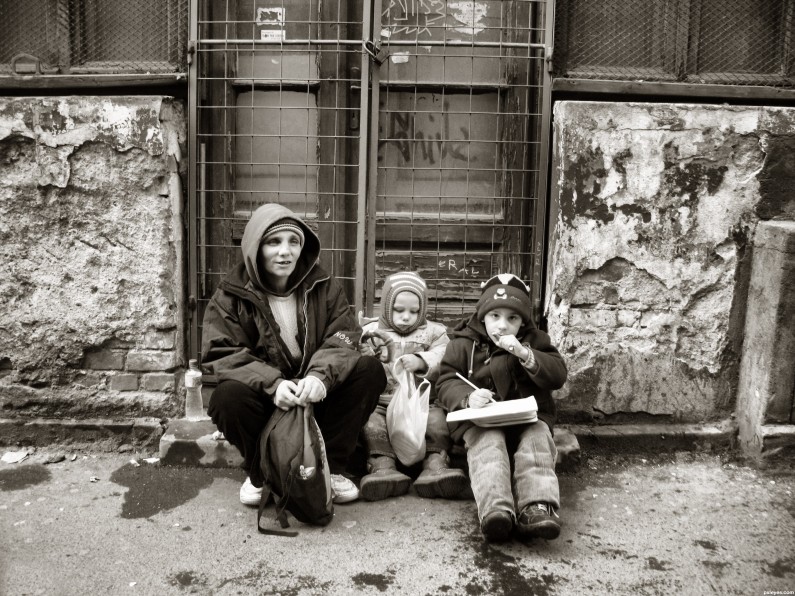Based on recent polling, fewer Americans are putting their faith in religion’s influence to help solve America’s social problems.
Earlier in our nation’s history, religious leaders and institutions were very visible and instrumental in confronting important cultural and civic issues like slavery and segregation. Today, people have less faith about the ability and impact of religion and its believers to challenge contemporary social issues.
An article in Quartz by Neha Thirani Bagri, communicates this pessimism saying,
[T]he share of Americans who think that churches, synagogues, and other houses of worship contribute to solving crucial social problems is declining rapidly, according to a new study by the Pew Research Center.
In August 2008, 75% of Americans said that religious institutions and leaders contributed at least somewhat to solving societal problems. That percentage had fallen to 65% by July 2012, and further declined to 58% in the most recent survey.
Roughly 4 in 10 Americans now say that religious leaders and institutions do not make a significant contribution to solving social problems.
Bagri goes on to suggest that one possible reason for the lack of faith in religion’s capability and contribution toward rectifying social problems is the changing demographics of those who identify as religious. Because more and more people are rejecting traditional religious affiliation, it’s no surprise that increasing numbers of people don’t view religion or religious institutions as playing any meaningful role in helping cure the afflictions of American society.
Even though religion is no longer the cultural force it once was, Bagri notes that the declining clout of religion hasn’t reduced the appeal of social activism. More and more activists are outright rejecting religious influence, desiring to create their own identity and moral authority for themselves and their cause.
Bagri says,
[M]odern activism in many cases no longer needs, or even desires, the imprimatur of churches.
I think there are a few issues here at play.
First, the poll’s use of the phrase “social issues” should be understood as social justice. “Solving” these issues, means surrendering to the cultural and political demands for “rights,” “equality,” and “justice for special and targeted identity-focused groups. Lastly, though the poll identifies “churches and synagogues” as losing influence among social justice advocates, the focus is on the social dissatisfaction of Christians who’re unwilling to bend to the spirit of the times.
I’m of the opinion that the poll insinuates that religion, religious institutions, and religious clergy – Christians – aren’t contributing to, fighting for, and/or capitulating their beliefs in favor of trendy definitions of social justice in ways numerous Americans would like.
On the other hand, since the numbers of Christians who self-identify as social justice warriors appear to be swelling, the poll could also suggest that Americans want more Christians to stand in solidarity with social justice activists to “solve” social issues. This might prove why the church has no tangible affect or presence when trying to solve cultural issues. Christian advocates of social justice consistently subordinate their spiritual faith to their political ideology; the consequence being that Christian identity and Christian expression, and the pursuit of biblical justice is subdued if not erased. Furthermore well-meaning Christians who aren’t self-identified social justice advocates but who desire to achieve biblical justice based on secular trends of social justice are just as guilty in nullifying a recognizable Christian influence on social issues.
I think that’s the focal point.
Due to the cultural influence of the progressive ideological morality – pathological narcissism – that challenges traditional norms, more Americans want Christians to compromise their religious worldview to allow this new morality to become the standard. The homosexual revolution that endorses same-sex marriages and families, the emotionalism of sexual identity formation; the so-called racial “justice” and the condemnation of racial privilege, and the distorted forms of economic “justice” all violate conventional notions of commonsense, fairness and equality under the law, and biblical principles. Christians represent the last fortified resistance to full implementation of this contemptible value system. As a result, it’s no surprise that many Americans are trying to persuade and coerce Christians into conformity while conferring superficial moral authority and superiority for their social causes as a consequence of the so-called deficiency of Christian participation.
In this light, it’s one reason why modern-day activism, like Black Lives Matter for example, lacks the efficacy and stature of its cultural and political precursors. It lacks a clear agenda, a certain respectability of its intentions, and the moral persuasion and religious credibility of the church that the civil rights activists of the 1960s were clearly in possession of.
Bravo to the courageous Christian holdouts who’ve refused to compromise their faith to endorse attitudes, trendy ideas and behaviors that contradict their religious and theological convictions.
No comments yet





